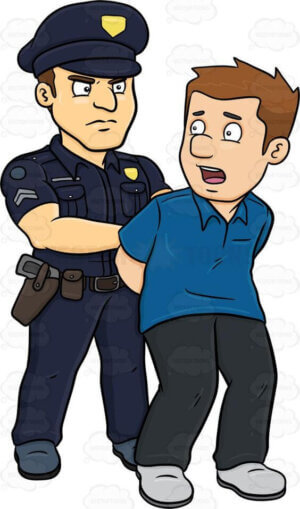I was not read my Miranda Rights when being arrested—was my arrest illegal?
A common mistaken belief is that when a person is being arrested, the arresting officer must read that person their Miranda Rights, also known as the Miranda Warning, or ““You have the right to remain silent. Anything you say can and will be used against you…”
However, an arresting officer is only required to read your Miranda Rights in certain circumstances, and failure to read someone their Miranda Rights does not necessarily make the arrest illegal.
 The Miranda Warning is a type of notification customarily given by police to criminal suspects in police custody advising them of their right to silence; that is, their right to refuse to answer questions or provide information to law enforcement or other officials.
The Miranda Warning is a type of notification customarily given by police to criminal suspects in police custody advising them of their right to silence; that is, their right to refuse to answer questions or provide information to law enforcement or other officials.
The Miranda Warning is a tool to prevent officers from eliciting self-incriminating statements from those being arrested, and thus protecting the arrestee’s Fifth Amendment Right against self-incrimination.
Can a police officer use what someone in their custody said during an arrest in a criminal trial?
If law enforcement officials decline to offer a Miranda Warning to an individual in their custody, they may question that person and act upon the knowledge gained, but may not use that person’s statements as evidence against them in a criminal trial.
When you are arrested, the police do not have to read you your Miranda Rights in order to validate that arrest.
When am I entitled to have my Miranda Rights read?
You are entitled to your Miranda Rights when:
- You are in police custody AND you are officially being questioned.
Many times, when police have someone under their custody, they do not intend to question or interrogate that person, thus no need for them to read you your Miranda Rights at that time.
Some police officers choose to read Miranda Warnings during an arrest no matter the circumstances, which is seen a lot on television. However, this is not a requirement until you are being formally questioned while you are in police custody.
What should I say or do if I am put under police custody?
It is important to cooperate with police while in their custody. Being polite and showing identification are helpful in avoiding any other charges, like misconduct. But you do not have to answer any questions or say anything, other than to request a lawyer.
If you were charged with a crime or if you think your rights were violated during an arrest, contact the Pittsburgh Criminal Attorneys at Ketchel Law for a free legal consultation.
_______________
FREE LEGAL CONSULTATION
Call us today—412-456-1221 – to find out how we can help defend your rights.
Learn more about Ketchel Law:
- Pittsburgh Criminal Lawyers
- Pittsburgh DUI Lawyers
- Pittsburgh Drug Lawyers
- Sex Crime Attorneys
- Read Reviews Our Clients Have Written
- View Our Case History / Results
- Our PA Legal Blog
CALL KETCHEL LAW TODAY: 412-456-1221 FOR A FREE CONSULTATION
